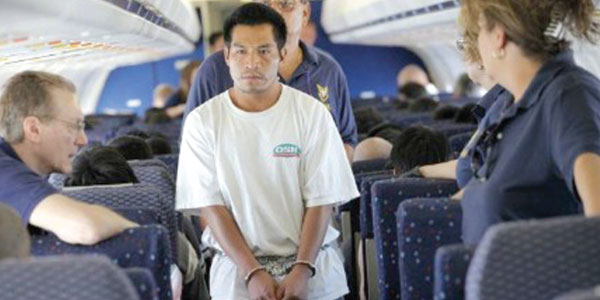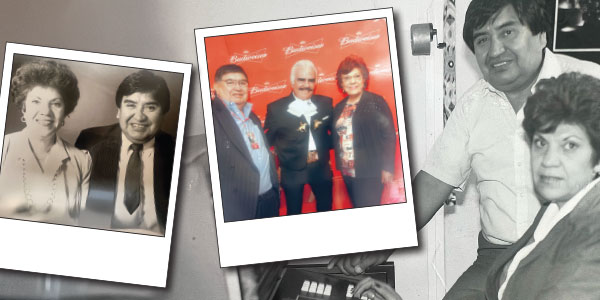
Commentary by Eulogio JP
It is a painful truth that there is an immigration crisis in the United States. And the pain of that truth is being felt in the Kansas City area.
In the United States, there is a deepening backlog of immigration cases throughout the court system that is leaving people’s lives in suspense for years. In Kansas City, for instance, a deportation case could take 580 days to close.
When an immigrant is brought before a judge for a first appearance, the immigrant is encouraged to seek a lawyer’s representation and return in five or six months. And that is just to get a case started.
Sadly, once represented, the delays in an immigrant’s case may last years. An immigrant’s appearance that is scheduled for, say, January 2019 might be rescheduled for mid-2022.
Alas, lawyers have no choice but to accept a court date for their client that is years into the future. Letting this much time go by is risky and might or might not benefit the client.
How will the law evolve? Will it change to benefit or further harm people living illegally in the United States? Those are a few questions clients ask their immigration lawyers. The lawyers, unfortunately, have no answer for them.
To reduce the backlog, 46 immigration judges have been added nationwide – a 30 percent increase. However, arrests by Immigration and Customs Enforcement agents are climbing faster – about 40 percent higher than in 2016, in fact.
On the positive side, a hearing set for 2022 gives undocumented immigrants the time they need to build a stronger case for themselves by gaining income, marrying a U.S. citizen and establishing themselves in a community. On the negative side, in the case of minors whose parents might face deportation, they might become adults by the time their parents’ case is heard, thus significantly weakening their parents’ case for staying in the United States.
The backlog varies by region. In Kansas City, cases are taking an average of 580 days to be closed. In Colorado, however, the average is 1,045 days.
The Department of Justice has set a goal of slashing the backlog in half by 2020 by continuing to hire judges and requiring that each judge close 700 cases a year. Meanwhile, the backlog continues to build, further worsening the pain inflicted by America’s immigration crisis.
_______________________________________________________________________________________________
Acumulación de casos de inmigración en el área refleja el dolor de crisis migratoria
Es una dolorosa verdad que hay una crisis migratoria en los Estados Unidos. Y el dolor de esa verdad se siente en el área de Kansas City.
En los Estados Unidos, hay una acumulación cada vez mayor de casos de inmigración en todo el sistema judicial que deja las vidas de las personas en suspenso durante años. En Kansas City, por ejemplo, un caso de deportación podría tardar 580 días en cerrarse.
Cuando un inmigrante es llevado ante un juez para una primera comparecencia, se le recomienda que busque la representación de un abogado y que regrese en cinco o seis meses. Y eso es sólo para empezar un caso.
Lamentablemente, una vez representados, los retrasos en el caso de un inmigrante pueden durar años. La aparición de un inmigrante que está programada para, por ejemplo, enero de 2019 podría ser reprogramada para mediados de 2022.
Por desgracia, los abogados no tienen más remedio que aceptar una fecha de Corte para su cliente que es años en el futuro. Dejar pasar tanto tiempo es arriesgado y podría o no beneficiar al cliente.
¿Cómo evolucionará la ley? ¿Cambiará para beneficiar o perjudicar más aún a las personas que viven ilegalmente en los Estados Unidos? Esas son algunas preguntas que los clientes hacen a sus abogados de inmigración. Los abogados, desafortunadamente, no tienen una respuesta.
Para reducir el retraso, se agregaron 46 jueces de inmigración en todo el país: un aumento del 30 por ciento. Sin embargo, los arrestos de los agentes de Inmigración y Control de Aduanas están aumentando más rápido, de hecho, un 40 por ciento más que en 2016.
En el lado positivo, una audiencia programada para 2022 les da a los inmigrantes indocumentados el tiempo que necesitan para construir un caso más sólido para sí mismos al obtener ingresos, casarse con un ciudadano de los Estados Unidos y establecerse en una comunidad. En el lado negativo, en el caso de los menores cuyos padres podrían ser deportados, podrían convertirse en adultos para cuando se escuche el caso de sus padres, lo que debilitará significativamente el caso de sus padres para quedarse en los Estados Unidos.
El retraso varía según la región. En Kansas City, los casos tardan un promedio de 580 días en cerrarse. En Colorado, sin embargo, el promedio es de 1,045 días.
El Departamento de Justicia ha establecido el objetivo de reducir a la mitad el atraso para 2020 al continuar contratando jueces y exigir que cada juez cierre 700 casos por año. Mientras tanto, la acumulación de pedidos sigue aumentando, lo que empeora aún más el dolor causado por la crisis migratoria de Estados Unidos.










